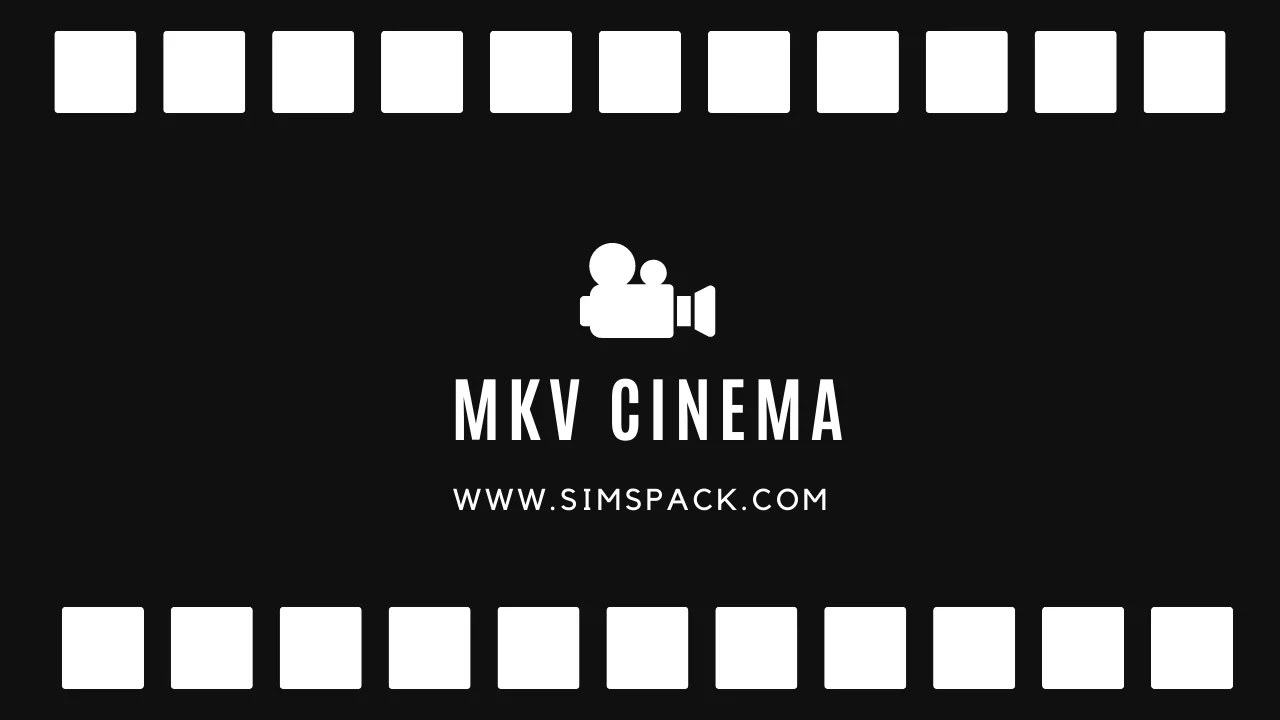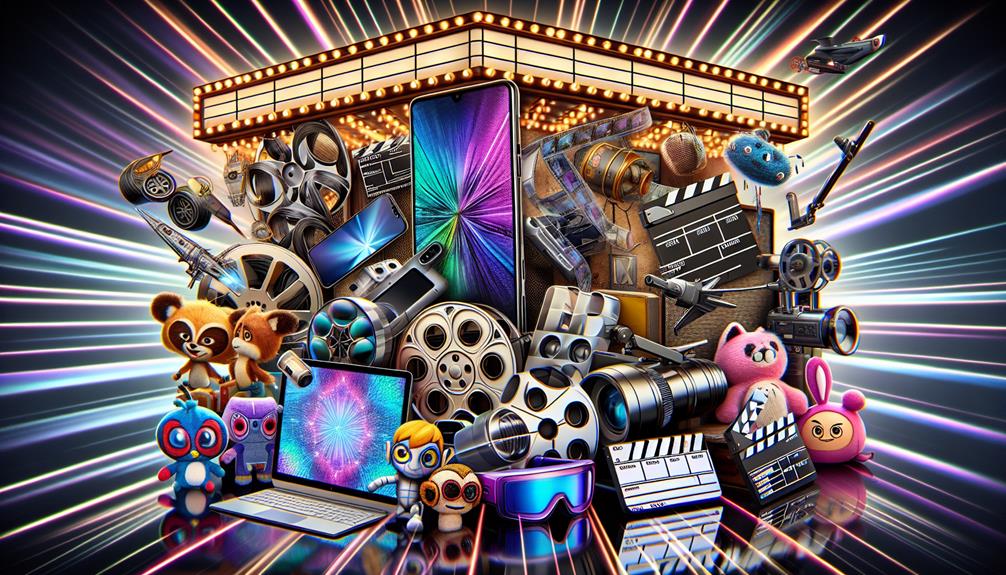Exploring MKV Movie Cinema: The Ultimate Guide To MKV Format In Film
In today's digital age, MKV movie cinema has become a popular format for film enthusiasts around the world. The MKV file format offers superior quality and flexibility, making it a favorite among cinephiles who demand the best experience possible. If you're new to the world of MKV cinema, this article will provide you with a comprehensive understanding of everything you need to know about this remarkable format.
As more people transition from traditional media to digital platforms, understanding the intricacies of file formats like MKV becomes increasingly important. MKV files are not only versatile but also allow for the inclusion of multiple audio tracks, subtitles, and metadata, enhancing the overall viewing experience.
In this article, we will delve into the world of MKV movie cinema, exploring its benefits, technical specifications, and how it compares to other formats. Whether you're a casual viewer or a dedicated film collector, this guide will equip you with the knowledge to make informed decisions about your digital movie library.
Read also:Discover The Hidden Charm Of Rancho Jazmin San Jose Ca
Table of Contents
- What is MKV Movie Cinema?
- The History and Evolution of MKV Format
- Benefits of Using MKV for Movies
- MKV vs. Other Formats
- How to Play MKV Files
- Editing MKV Files
- Adding Subtitles to MKV Movies
- Ensuring High-Quality MKV Movies
- Optimizing Storage for MKV Files
- The Future of MKV in Cinema
What is MKV Movie Cinema?
The MKV file format, short for Matroska Video, is an open-standard container format designed to hold an unlimited number of video, audio, picture, or subtitle tracks in a single file. MKV movie cinema is particularly popular among those who prioritize quality and flexibility in their digital movie collections.
MKV files are known for their ability to maintain high-quality video and audio while supporting various codecs. This makes them ideal for cinephiles who demand the best possible experience when watching movies at home.
One of the key advantages of MKV movie cinema is its compatibility with a wide range of devices and software. Unlike some proprietary formats, MKV is open-source, meaning it can be used without licensing restrictions.
The History and Evolution of MKV Format
Origins of MKV
The MKV format was first developed in 2002 by the Matroska development team. The name "Matroska" is derived from the Russian word for a traditional stacking doll, symbolizing the format's ability to contain multiple elements within a single file.
Key Milestones
- 2003: The first stable release of the MKV format, establishing its reputation as a reliable container.
- 2005: Adoption by major video encoding communities, solidifying MKV's place in the digital media landscape.
- 2010s: Widespread use in online streaming platforms and digital downloads, further cementing its popularity.
Over the years, MKV has evolved to support advanced features such as HDR video, 3D content, and improved metadata integration.
Benefits of Using MKV for Movies
There are numerous advantages to using MKV for your digital movie library. Below are some of the key benefits:
Read also:Discover The World Of Honeytoon Free Comic Your Ultimate Guide
- High-Quality Video and Audio: MKV supports a wide range of codecs, allowing for superior video and audio quality.
- Flexibility: You can include multiple audio tracks, subtitles, and chapters in a single file, providing a more customized viewing experience.
- Compatibility: MKV files are compatible with a variety of devices and software, ensuring you can watch your movies anywhere.
- Open-Source: Being an open-standard format, MKV is free from licensing restrictions, making it accessible to everyone.
These advantages make MKV an excellent choice for anyone looking to enhance their digital movie collection.
MKV vs. Other Formats
Comparison with MP4
While MP4 is one of the most popular video formats, MKV offers several advantages. MKV supports more codecs and provides greater flexibility in terms of features like multiple audio tracks and subtitles. Additionally, MKV is less prone to compatibility issues with certain codecs.
Comparison with AVI
AVI was once a dominant format but has since been largely replaced by MKV due to its superior performance and feature set. MKV offers better compression, higher quality, and more advanced capabilities than AVI.
In summary, MKV outperforms many other formats in terms of quality, flexibility, and compatibility, making it a preferred choice for cinephiles.
How to Play MKV Files
Playing MKV files is straightforward, thanks to the format's widespread adoption. Below are some of the best players for MKV movie cinema:
- VLC Media Player: A free, open-source player that supports virtually all codecs and formats, including MKV.
- Kodi: A powerful media center software that excels at playing MKV files with ease.
- MPC-HC: A lightweight Windows player specifically designed for handling MKV and other video formats.
Ensure that your player is updated to the latest version to take full advantage of MKV's capabilities.
Editing MKV Files
Tools for Editing
Editing MKV files requires specialized software capable of handling the format's complexities. Some popular tools include:
- MKVToolNix: A comprehensive suite for creating, editing, and analyzing MKV files.
- HandBrake: A versatile video transcoder that can convert MKV files to other formats while preserving quality.
- Adobe Premiere Pro: A professional-grade video editing software that supports MKV files.
These tools allow you to modify MKV files, such as adding subtitles, adjusting audio tracks, or re-encoding the video.
Adding Subtitles to MKV Movies
Subtitles are an essential feature for enhancing the accessibility and enjoyment of MKV movies. Here's how you can add subtitles to your MKV files:
- Using MKVToolNix: This tool allows you to merge external subtitle files into your MKV movie seamlessly.
- Embedding Subtitles: You can embed subtitles directly into the MKV file, ensuring they are always available during playback.
- Selecting Subtitle Tracks: MKV supports multiple subtitle tracks, giving viewers the option to choose their preferred language.
By adding subtitles, you can cater to a broader audience and improve the overall viewing experience.
Ensuring High-Quality MKV Movies
To ensure the highest quality for your MKV movies, consider the following tips:
- Choose the Right Codec: Use codecs like H.264 or H.265 for optimal compression and quality.
- Set Appropriate Bitrates: Higher bitrates generally result in better quality but may require more storage space.
- Optimize Audio Settings: Select high-quality audio codecs like AAC or DTS for the best sound experience.
By paying attention to these details, you can create MKV files that deliver stunning visuals and immersive audio.
Optimizing Storage for MKV Files
MKV files can be relatively large due to their high-quality nature. To optimize storage, consider the following strategies:
- Use External Drives: Store your MKV collection on external hard drives or NAS devices for easy access and backup.
- Compress Files: While preserving quality, you can compress MKV files using advanced codecs to save space.
- Cloud Storage: Utilize cloud services for offsite storage and streaming capabilities.
By implementing these storage solutions, you can manage your MKV movie collection efficiently.
The Future of MKV in Cinema
As technology continues to advance, the future of MKV in cinema looks promising. With the rise of 4K and 8K resolutions, HDR, and immersive audio formats, MKV is well-positioned to meet the demands of modern cinephiles.
Additionally, the ongoing development of open-source software and hardware ensures that MKV will remain a relevant and versatile format for years to come.
Conclusion
In conclusion, MKV movie cinema offers a superior experience for film enthusiasts, combining high-quality video and audio with unmatched flexibility. By understanding the benefits, technical aspects, and best practices of MKV files, you can build a digital movie library that meets your every need.
We encourage you to explore the world of MKV further and experiment with its capabilities. Don't forget to share your thoughts and experiences in the comments below, and feel free to explore other articles on our site for more insights into the world of digital media.
Article Recommendations


